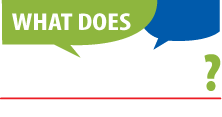Phrases starting with the letter: A B C D E F G H I J K L M N O P Q R S T U V W X Y Z
Definition of: verbal
(vûr′bəl) adjective
1. Of, pertaining to, or connected with words; concerned with words rather than the ideas they convey: verbal distinctions.
2. Uttered by the mouth; expressed in words orally; not written: a verbal communication; a verbal contract or agreement.
3. Having word corresponding with word; literal: a verbal translation.
4. Gram. a Partaking of the nature of or derived from a verb: a verbal noun. b Used to form verbs: a verbal prefix.
—noun Gram. A noun directly derived from a verb, in English often having the form of the present participle, and signifying the act or process of what is expressed in the verb root; as, there shall be weeping and wailing and gnashing of teeth; also, an infinitive used as a noun; as, to err is human: also verbal noun. Compare GERUND. [<F <LL verbalis <L verbum word]
—ver′bal·ly adverb Synonyms (adj.): literal, oral, vocal. These words, whose etymology would make them similar in meaning, are differentiated in usage by their applications. Oral (L os the mouth) signifies uttered through the mouth or (in common phrase) by word of mouth; vocal (L vox the voice) signifies of or pertaining to the voice, uttered or modulated by the voice, and especially uttered with or sounding with full, resonant voice; literal (L litera a letter) signifies consisting of or expressed by letters, or according to the letter in the broader sense of the exact meaning or requirement of the words used; what is called “the letter of the law” is its literal meaning without going behind what is expressed by the letters on the page. Thus oral applies to that which is given by spoken words in distinction from that which is written or printed; as, oral tradition; an oral examination. By this rule we should in strictness speak of an oral contract or an oral message, but verbal contract and verbal message, as indicating that which is spoken rather than by written word, have become fixed in the language. A verbal translation may be oral or written, so that it is word for word; a literal translation follows the construction and idiom of the original as well as the words; thus a literal translation is more than one that is merely verbal; both verbal and literal are opposed to free. In the same sense, of attending to words only, we speak of verbal criticism, a verbal change. Vocal has primary reference to the human voice; as, vocal sounds, vocal music; vocal may be applied within certain limits to inarticulate sounds given forth by other animals than man; as, The woods were vocal with the songs of birds; oral is never so applied.

Comment about this word, ask questions, or add new information about this topic: